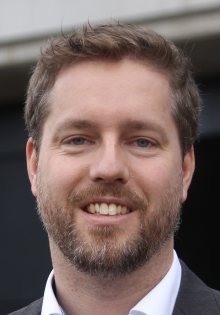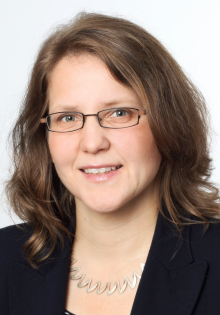Paderborn University's expertise is in demand: Prof. Dr. Eric Bodden, Head of the Institute of Computer Science, and Prof. Dr. Christine Silberhorn, physicist and Chair of "Integrated Quantum Optics", have been accepted as new members of the German Academy of Science and Engineering - acatech for short. The academy, which is funded by the federal and state governments, is the voice of the technological sciences in Germany and abroad. Its members advise politicians and society on issues relating to the future of technology science and technology policy. Under the patronage of the Federal President, the Academy fulfills its advisory mandate independently, based on facts and oriented towards the common good.
The scientists, who can only be admitted to the Academy through appointments and on the recommendation of acatech, all demonstrate scientific excellence in their fields of research. Election as a new member is both an honor and a voluntary commitment - the members are involved in the Academy's thematic networks, working groups and projects.
Bodden: "It is a great honor for me to be accepted. But I am also looking forward to the exchange on socially important topics. I think that I can make a valuable contribution to the sustainable and user-friendly protection of our IT infrastructure in particular." The scientist is one of the leading experts in the field of secure software development. His particular focus is on the development of high-precision tools for automatic program analysis. Bodden is Professor of Secure Software Engineering at the Heinz Nixdorf Institute at Paderborn University and Director of Software Engineering and IT Security at the Fraunhofer Institute for Mechatronic Design. He is also a member of the "Working Group 2.4 Software Implementation Technology" of the "International Federation for Information Processing" (IFIP), which reports to the United Nations.
Leibniz Prize winner Silberhorn, who is also a member of Germany's highest-ranking science policy advisory body, the Science Council, focuses her research on the development of optical components and methods for quantum technology applications. She is also spokesperson for the Institute for Photonic Quantum Systems (PhoQS) and the Collaborative Research Center "Tailored Nonlinear Photonics". She is also a member of the Leopoldina and the North Rhine-Westphalian Academy of Sciences, Humanities and the Arts. She is also looking forward to her new role with great anticipation: "I am delighted to have been accepted and to have the opportunity to contribute my scientific expertise to the work of acatech. It sustainably supports Germany's technological performance at the forefront of the world and has also been supporting developments in quantum technologies for several years. It will be very exciting for me to exchange ideas with colleagues and to be able to provide important impulses in advising politics and society".
This text has been translated automatically.

![[Translate to English:] [Translate to English:]](/fileadmin-eim/fakultaet/News/EIM23/UPB_Silberhorn-Bodden-Acatech.jpg)

